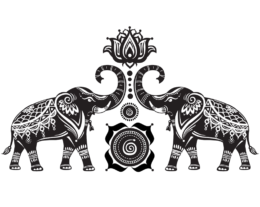We Are Culture: The Essence of Human Identity
Culture is the tapestry that weaves together the diverse threads of human experience, shaping our identities, beliefs, and interactions. It encompasses the arts, traditions, languages, values, and social norms that define a group of people. The phrase “We are culture” encapsulates the idea that culture is not merely an external phenomenon but an intrinsic part of who we are as individuals and as a collective. This essay explores the multifaceted nature of culture, its role in shaping our identities, and its significance in fostering understanding and connection among diverse communities.
The Definition and Components of Culture
Culture can be understood as the shared practices, values, and artifacts that characterize a particular group. It includes various components such as language, religion, cuisine, social habits, music, and art. Each of these elements contributes to the unique identity of a community, providing a sense of belonging and continuity. Language, for instance, is not just a means of communication; it carries the history, traditions, and worldview of its speakers. Similarly, art and music reflect the emotions, struggles, and aspirations of a culture, serving as a medium for expression and connection.
Culture as Identity
At its core, culture is a fundamental aspect of our identity. It shapes how we perceive the world, interact with others, and understand our place within society. Our cultural background influences our values, beliefs, and behaviors, often guiding our decisions and shaping our relationships. For example, cultural norms dictate how we celebrate milestones, mourn losses, and express love and gratitude.
In a globalized world, where cultures intersect and interact, understanding our own cultural identity becomes increasingly important. It allows us to appreciate our roots while also recognizing the richness of other cultures. This awareness fosters empathy and respect, enabling us to navigate the complexities of a diverse society.
The Role of Culture in Society
Culture plays a vital role in shaping social cohesion and community identity. Shared cultural practices and values create bonds among individuals, fostering a sense of belonging and solidarity. Festivals, rituals, and communal gatherings serve as opportunities for people to come together, reinforcing social ties and collective memory.
Moreover, culture is a powerful tool for social change. It can challenge existing norms and inspire movements for justice and equality. Artistic expressions, literature, and music have historically been used to voice dissent, raise awareness, and mobilize communities. By reflecting the struggles and aspirations of marginalized groups, culture can serve as a catalyst for transformation, encouraging dialogue and understanding.
The Impact of Globalization on Culture
In the age of globalization, cultures are constantly interacting, blending, and evolving. While this interconnectedness can lead to the enrichment of cultural experiences, it also poses challenges. The dominance of certain cultures, particularly Western culture, can overshadow local traditions and practices, leading to cultural homogenization. This phenomenon raises concerns about the preservation of cultural diversity and the potential loss of unique identities.
However, globalization also offers opportunities for cultural exchange and collaboration. The sharing of ideas, art, and traditions can foster mutual understanding and appreciation among diverse communities. Embracing this exchange while valuing and preserving our unique cultural identities is essential for a harmonious coexistence in an increasingly interconnected world.
Conclusion
In conclusion, the assertion that “We are culture” underscores the profound impact of culture on our identities and societies. It is a dynamic force that shapes our beliefs, values, and interactions, providing a sense of belonging and continuity. As we navigate the complexities of a globalized world, it is crucial to celebrate and preserve the richness of cultural diversity while fostering understanding and connection among different communities. By recognizing that we are all part of a larger cultural tapestry, we can cultivate empathy, respect, and collaboration, ultimately enriching the human experience for generations to come.
